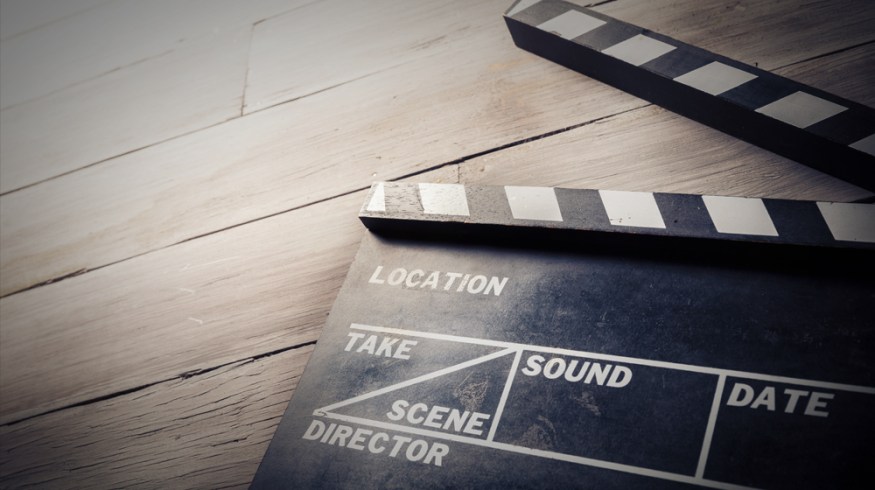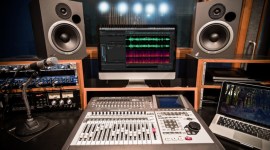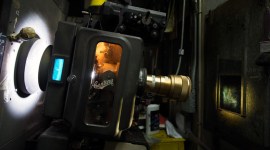
Tax Deductions for Filmmakers and Videographers
Make tax season a little less painful with these tax deductions for filmmakers and videographers. It will likely save you money!
Before we begin: We’re not Certified Public Accountants, so be sure to consult a CPA to find out exactly what tax write-offs work best for you. Let’s kick this off with two pieces of very important advice…
Keep Immaculate Records
Keep your records in order and set aside a percentage of every dollar you earn for self-employment tax. I’ve found that utilizing assets such as Square to send invoices and run credit cards really helps me keep my records tight. Then I tie Quickbooks to my bank account to consolidate all of my records into one place. At the end of the year, all I have to do it send the Quickbooks documentation to my CPA so she can prepare my taxes for filing. Speaking of CPAs…
Hire a Certified Public Accountant
You’re going to need help navigating the ins and outs of what can be deducted and what can’t. Hiring a CPA will help you save some money in the long run.
 Image from Shutterstock
Image from Shutterstock
Deductions for Filmmakers and Videographers
As we explore these possible tax deductions for filmmakers and videographers, keep in mind that you could end up audited. Be sure that you can justify your deductions. That point is going to come up a lot as we move forward. Now let’s look at some easy ways that deductions can save you some money.
1. Small Items
Any small item that you spend money on for daily production tasks is something you can deduct. Tool kits, dry erase boards and markers, gaffer tape, etc. These are all things you can deduct. You just have to be able to justify the purchase and its use in your daily business.
2. All Computer Related Items
If you purchased a new computer this year, it’s deductible – with some conditions. If you use that new computer solely for work, then you can claim the entire purchase price, but only by using a Section 179 Deduction. If you’re using the computer for business and personal, that changes how much of the purchase price you can deduct. Your CPA will be able to give you a more concrete idea of what those numbers are.
It’s not just hardware that can be deducted; software is eligible too. Your Adobe Creative Cloud subscription is a great example of software that’s deductible. Just make sure you give your transaction invoices to your CPA in Quickbooks or physical form.
 Image from Scott Prokop / Shutterstock.com
Image from Scott Prokop / Shutterstock.com
3. Film & Video Production Equipment
Every piece of equipment that you purchase for your work is a deduction during tax season. Did you purchase a new camera this year? That’s a deduction. Did you go to B&H Photo and purchase new lenses for that camera? Maybe a penguin case? ND filters? Those are deductions. Or maybe you purchased new sound equipment from Sweetwater? Deduction. Even batteries, memory cards, tripods, sliders, and stabilizers are deductible as long as they are being justifiably used for your business.
4. Digital and Print Research
As filmmakers and videographers, we are constantly consuming content in order to stay on top of what is going on in our industry. Because of this you might be justified in deducting the whole cost or a portion of the cost of Netflix, Hulu Plus, Amazon Prime, cable service, movie tickets, industry books, periodicals, and smart phone apps. Again, you have to be able to justify these expenses as something you need for your work. Your CPA will be able to give you a concrete answer on whether you can apply these expenses as deductions.
 Image from Shutterstock
Image from Shutterstock
5. Dining and Entertainment
To deduct dining and entertainment expenses, you need to be able to justify how they relate to your business. More than likely you wont be able to claim the entire amount. When dining with clients or colleagues, I usually claim around 50% of the cost. I’ll also deduct the cost of a wrap party for my crew after filming has concluded. Screenings and premiere costs are also deductible. All of these things can be seen as the cost of doing business. Here’s what the IRS has to say on the matter.
6. Online Presence
All of us need some sort of online presence in order to build our business. Because building this online presence is so crucial to earning a living, you should look at deducting the cost of this presence. Things that could apply here are cloud storage costs (Onedrive, Google Drive, Dropbox), yearly website domain and hosting costs, and online membership costs such as IMDB Pro. Even the costs of website design and development are deductible.
 Image from Shutterstock
Image from Shutterstock
7. Travel Expenses and Conferences
Expenses you incur while doing business outside of your home might fall into the travel expenses category. Whether you’re driving for five hours or your taking a flight across the country for a film shoot, these are all deductible expenses. Be sure and keep records of everything including rental cars, taxi rides, and hotels. If you paid for the travel of your crew, add that cost as well. Additionally, if you’re attending a conference like NAB or SXSW, you can deduct the attendance costs, as they directly pertain to your work. For more information on travel expense and conference deductions head over to the IRS Website.
8. Business Startup Expenses
Keep track of all the costs that you pay out to start your business such as incorporation fees, lawyer fees, and copyright/trademark filing fees. You can even deduct the payments made to your CPA or financial advisor. Also check out Caron Beesley‘s Startup Cost Tax Deductions article on the SBA.gov blog.
 Image from Shutterstock
Image from Shutterstock
9. Printed Self Marketing
In addition to your online marketing, you’ll likely want to purchase printed media like business cards, flyers, or brochures. These costs are deductible as well. In fact, business cards were #4 on the Bloomberg Business list of 25 Unsung Tax Deductions.
10. Home Office Expenses
Home offices and editing rooms are loaded with potential deductions, including the actual space you use. Other likely deductions: desks, chairs, lamps, pens, printers, printer paper, ink cartridges, staples, etc. You get the idea. These may seem like small insignificant purchases, but they add up quickly. The IRS has an entire page dedicated to the ins and outs of home office deductions.
 Image from Shutterstock
Image from Shutterstock
What We’ve Learned About Tax Deductions
Deductions aren’t too hard to decipher, as long as they are legal and pertain to your business. With that in mind, the most important take-aways are: Keep immaculate records and hire a CPA. Talk to other filmmakers that you know – chances are one of them has a CPA that they can recommend.
Are you a seasoned filmmaker or videographer? Do you know of additional deduction options not listed in our roundup? Let us know in the comments below.





